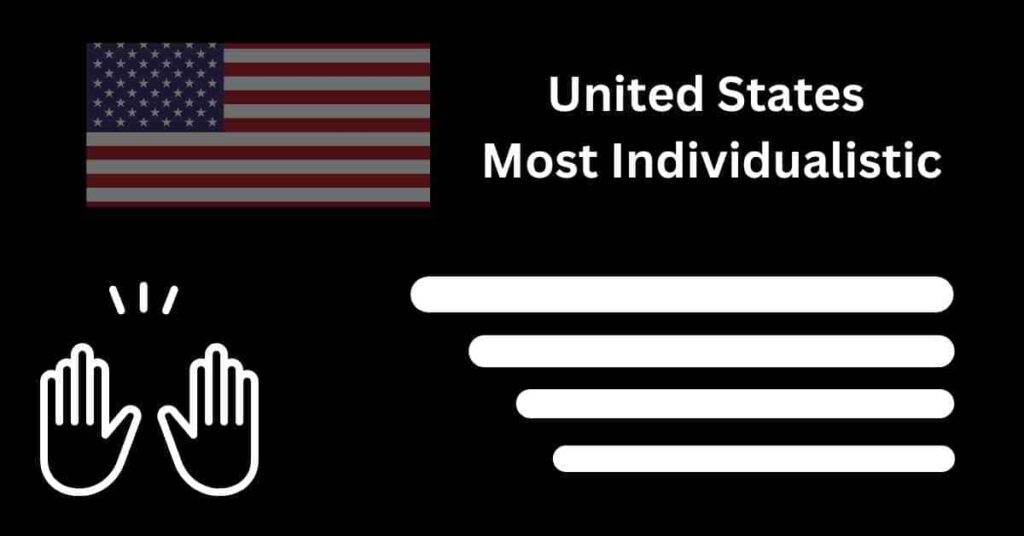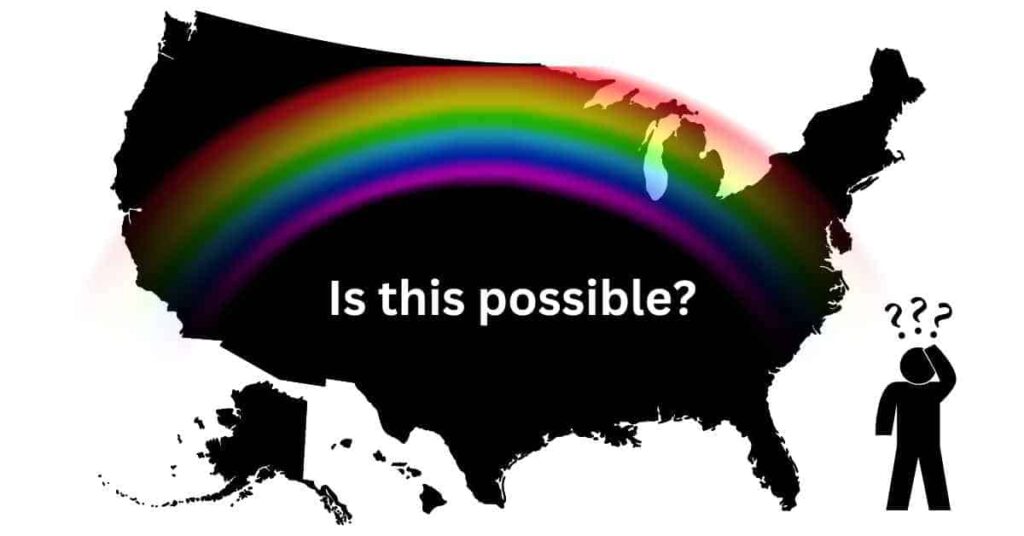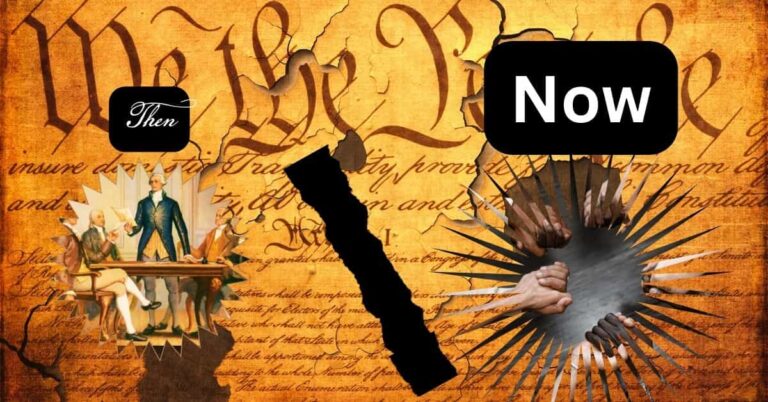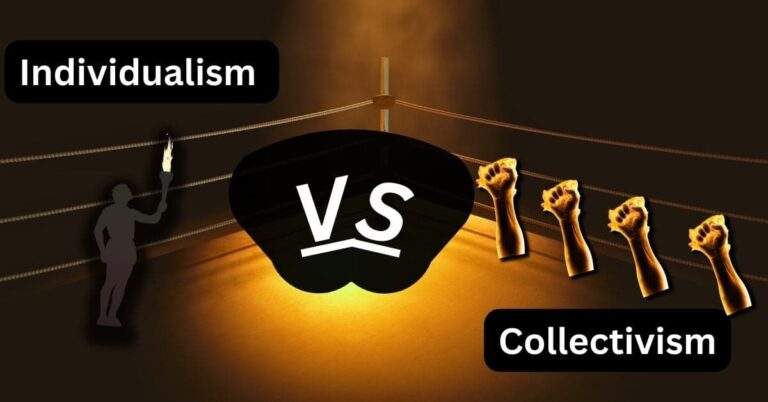You give all your effort into helping someone, now what? They thank you, and you never see them again. That’s altruism. In contrast, Individualism is seen as selfish. But is it completely?
Altruism and individualism work in unity for the common good. According to the World Giving Index, the United States has consistently ranked in the top 5 most charitable countries since its first publication date in 2010. Hofstede Insights ranks the U.S. as the world’s most individualistic country.
In this article, we will discuss how the United States is individualistic. Yet, it has empathy toward less economic powerhouses. I will give you data to show you the conclusions reached and dispel rumors. Read below to find out more about altruistic influence.
Which countries are altruistic?
The Charity Aid Foundation published an annual study of the world’s most charitable countries. They named their study the World Giving Index.
They measure giving based on the following 3 questions:
- Have you volunteered time for an organization?
- Have you donated money to charity?
- Have you helped a stranger?
Each of the previous questions represents a category of surveyed individuals.
Do you notice one minor detail about the questions asked to survey participants? Look closely…
All the questions start with “Have you..” meaning individuals-not groups volunteered their time. Since 2009, they interviewed over 1.95 million individuals.
Let’s look at the results of the survey.
|
|
||
|
Rank |
Country |
Score |
|
1 |
Indonesia |
68% |
|
2 |
Kenya |
61% |
|
3 |
United States |
59% |
|
4 |
Australia |
55% |
|
5 |
New Zealand |
54% |
|
6 |
Myanmar |
52% |
|
7 |
Sierra Leone |
51% |
|
8 |
Canada |
51% |
|
9 |
Zambia |
50% |
|
10 |
Ukraine |
49% |
|
|
||
|
Rank |
Country |
Score |
|
109 |
Italy |
29% |
|
110 |
Armenia |
29% |
|
111 |
Latvia |
29% |
|
112 |
Tunisia |
28% |
|
113 |
Lao People’s Democratic Republic |
27% |
|
114 |
Portugal |
26% |
|
115 |
Lebanon |
24% |
|
116 |
Egypt |
23% |
|
117 |
Afghanistan |
21% |
|
118 |
Japan |
20% |
|
119 |
Cambodia |
19% |
Indonesia Positioning;
Indonesia received the highest score overall ranking #1.
2 main reasons catapulted their standing:
- Technology, crowdfunding, and the internet
- Wealthier younger generation
Economic freedom and morality are valuable principles in individualist philosophy.
Reason and logic bind us to ethical duties of using money for good. Without this wealth, Indonesia wouldn’t be listed on this survey.
Also, greater financial success trends more toward independent cultures. Indonesia will be a country to watch in the future.
Kenya Positioning:
Kenya ranked #2.
85% of Kenya’s population is Christian. Their increase resulted from their personal responsibility to assist others.
Christianity teaches this doctrine at a young age.
“Do good unto others…”
United States Positioning:
The United States ranked #3. It is the only country to place in the top 10 of all 3 characteristics of altruism.
The bottom countries listed above have a more collectivist mentality. Their governments suspend their individualism. Authoritarianism will not allow you the freedom to help others. The group authorizes your activities.
One way to personally measure altruism is travel.
- Will a stranger help you on the sidewalk with directions?
- How friendly is the home country?
International travelers tell me Americans are friendly. Improving a life begins when you take a personal interest in someone else.
Niceness Test To Try
Go to a city in a collectivist society and initiate a conversation. Repeat this exercise many times.
After you’re done, count the number of occasions someone felt intrigued by your stories and your unique personality. That’ll give you an answer.
Go to a city in a collectivist society and initiate a conversation. Repeat this exercise many times.
After you’re done, count the number of occasions someone felt intrigued by your stories and your unique personality. That’ll give you an answer.
The United States holds top spots in this survey year after year. Thus, this proves individualism and altruism are comparable qualities and not in conflict.
A controversial figure in altruism is Ayn Rand. LEARN MORE by reading my article on Rand’s views against altruism. I will tell you why she dislike it and how it is misused.
The Most Individualistic Countries

Data provided by Hofstede Insights scores the U.S. as the most individualistic country with a score of 91.
Hofstede Insights is a cultural model dedicated to understanding societal trends. This study started surveying IBM employees in 1967.
Since its start, they developed 6 categories of study:
- Individualism vs Collectivism (IDV)
- Power Distance Index (PDI)
- Masculinity vs. Femininity (MAS)
- Uncertainty Avoidance Index (UAI)
- Long Term Orientation vs. Short Term Normative Orientation (LTO)
- Indulgence vs Restraint (IVR)
For this article, our focus is on individualism vs collectivism. If you want more information about this study, here is Hofstede’s Insights website.
In numerous conversations with collectivists, I’m told “You individualists are selfish. You only care for yourself.” That’s a false statement.
The U.S. is individualistic. But you’re able to understand and see people as unique personalities. We’re single birds in a combined flock seeking out the best for humanity.
We do speak our opinions. Yet, we’re generous with our wealth.
At a score of 91, other societies such as Venezuela have an individualism score of 12. This means they’re a collectivist culture. All your needs are provided for by the government.
Or are they?
Last time I checked, we have mass waves of immigration from there seeking the U.S.’s individualism.
I have personally discussed the situation with Venezuelans. They warn of the apocalypse if collectivism comes here.
After reading about the most individualistic country, LEARN MORE about the fundamental principles of individualism.
Types of Altruism
I want to give you a brief overview of different altruisms. I’ll help you understand the motivations for each.
According to legal scholar Richard Epstein, there are 2 types of political altruism:
- Reciprocal Altruism
- Universal Altruism
Below I will describe both of them in detail.
Reciprocal Altruism-Tit for tat
Reciprocal altruism is also called:
- Selective Altruism
- Mutualism
Personal Example
This altruism means you help someone and in exchange, you will receive payback in the future. You’re being “selective” in whom you help. Maximizing your time is your goal.
For example, if you mow your neighbor’s lawn while they’re gone, you’ll expect repayment at some point. To deny this fact is lying to yourself.
You’ll let it go a couple times due to altruism. But repeated requests from your neighbor to mow their lawn will require compensation. You will grow tired of the monotony.
They aren’t your family. And you’re more flexible with your own blood.
Political Example
On a political spectrum, this is where politicians will cater to one group and forget all others.
Another name is identity politics. And you see this phenomenon along racial or ethnic divides. Reciprocal altruism increases political polarization
Giving is a good thing originating from individualism. LEARN MORE about the Pros and Cons of Individualism.
Universal Altruism- Everything’s All Good

Universal altruism is charity promised no matter the case. Living in a world like this would be awesome. However, utopia is a land of transcontinental rainbows and is not possible.
Here are different resources needed for altruism to occur:
- Patience
Not everyone has infinite patience. You have emotions and have “moments of passion” yelling at people with whom you have conflict.
- Money
Your home budgets have limits. Government budgets have limits.
- Natural resources
In economics, we learn there is a finite number of resources. Everyone competes for them, but we can’t satisfy everyone’s needs. Natural resources are a great example of that economic definition.
“We will run out of oil all the time.”
The World Leaders
In general, the problem with universal altruism is people disguise their intentions. They’ll promise you anything while knowing it won’t happen. Because the relative efficiency of all these promises is impossible.
In a political setting, it strains government resources. The goal is to redistribute wealth via social welfare programs. People guarantee resources that aren’t theirs, or that they don’t control.
Universal altruism is idealism- not always possible.
Moral Altruism-Conviction
Some say morality has no place in modern society. Morality guides parts of culture that otherwise are lost. This type is less associated with politics and more with personal beliefs.
Looking at our above examples such as Kenya, morality guided them to aid their fellow humans.
Religious conviction breeds moral altruism. Whether you’re agnostic or Christian, churches sponsor many unfilled charities’ needs.
Conclusion
Having a world that values altruism and helping others turns frowns into smiles. It lifts people out of dire circumstances. Society needs a mix of rationality and altruism.
The World Giving Index is a metric measuring individual giving. In the most recent survey, the United States scored 3rd overall. But it ranked in the top 10 of all categories.
The United States is the most individualistic country. We also help people. Countries with lower scores tend to be more collectivist and less helpful.
We discovered 3 types of altruism:
- Reciprocal
- Universal
- Moral
Each have its own intentions. You be the judge whether that’s good or bad.
Overall, altruism and individualism work in tandem. Without both working together, humanity misses out.
Send me some stories of your altruism so I can put them together in a post.
J. Liberty
Collectivism claims to be the most altruistic. LEARN MORE as I compare and contrast collectivism and individualism. I give you differences in economics, politics, and family dynamics.
Additional Resources:
Here is a Freakonomics podcast explaining additional information about the Hofstede Cultural Model.
Print Sources:
Epstein, R. A. (1998). Principles for a Free Society: Reconciling Individual Liberty for the Common Good. Readings, Massachusetts: Perseus Books.



